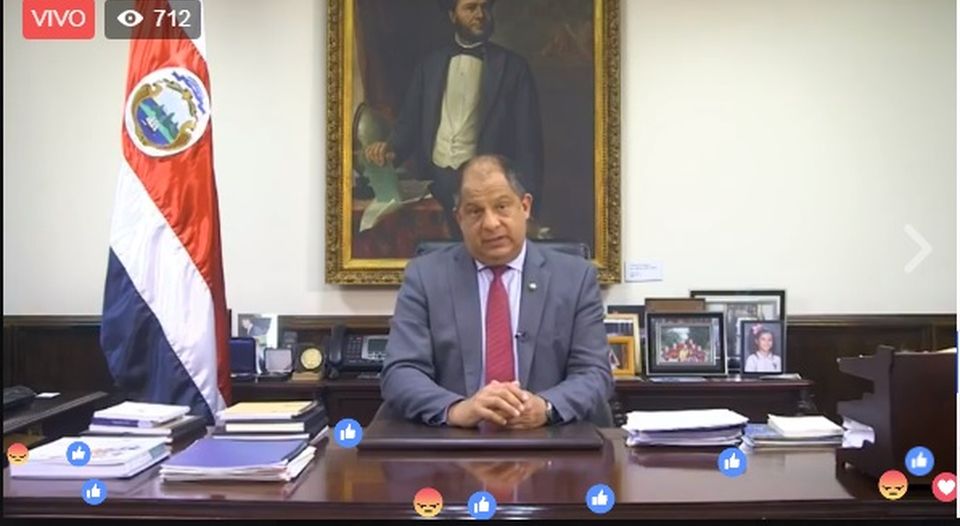Costa Rica News – President Luis Guillermo Solis announced Tuesday night that the government “faces liquidity difficulties to pay its obligations and guarantee the operation of essential services.”
In a television address to the nation, Solis warned if measures are not taken, interest rates on home loans and credit could increase.
He is pointing towards an increase in taxes.
However, on that issue, the President has faced strong clashes with the opposition which criticizes him for not limiting public sector salaries. The opposition is also critical of the President’s decision to postpone the discussion on taxes during his first year of his mandate.
During the presidential campaign in 2014, Solis had promised to wait two years into his term before deciding whether there would be any changes (increases) in taxes.
According to the President, he has ordered the National Treasury to prioritize payments from the Central Government to first pay public debt, salaries, and pensions. Second, transfers to institutions “according to their social urgency.” And, third, all other payments “taking into account the liquidity”.
In addition, there will be zero growth in 2018 expenditures for those items with no legal obligation to increase.
“Despite the calls and efforts we have made since the beginning of my mandate to contain expenses and increase revenues, there is still a gap that we must close with fresh resources,” he said.
During his first year in office, Solís presented a budget with an increase in spending of 19% for the second year (2015), which generated strong criticism from the opposition, given that the increase was five times greater than inflation. For the following year, it increased by 0.5% and, for the current year, by 12%.
On Tuesday, Solís called on legislators to approve the reforms for increases in sales and income taxes. The President added that his government has discarded the idea of promoting a “light tax” agenda introduced at the beginning of the year, and is now seeking “a more aggressive” tax reform.
The aggressive reform includes the introduction of a Value Added Tax – VAT (IVA in Spanish) even beyond 15%.
In 2015, in the original or ‘light’ version of the tax plan, the VAT would replace the 13% sales tax on goods, with a 15% tax on goods and services in the first year and the drop to 13% in the second year.
In the VAT proposal, in addition to the tax on the purchase or sale of goods, a tax would be charged for professional services and fees, such as legal fees, rentals (apartments and houses) and tourist activities, among others.
Since last week, the Ministerio de Hacienda (Ministry of Finance or Treasury) has warned of the liquidity problem faced by the Central Government and the problems faced in raising money by selling public debt bonds to internal investors, most of whom are public institutions and pension funds.
The deputy minister of Finance, Martha Cubillo, explained investors did not buy bonds when the Government made the public offer, rather investors waiting for higher interest rates.
Hacienda proposes as an emergency solution to ask the Legislature (Congress) for a new authorization to borrow abroad through a new placement of government bonds.
Critics of the proposal say the mere possibility of a new debt issuance abroad would “relax” the presidential candidates for 2018, ruling out the possibility of proposing deep tax reforms during the coming political campaign.
Solis’ mandate ends in May. Under Costa Rica’s constitution, he can not seek re-election until 2022. A couple of years ago, Solis made it public that he would be a one-time president.
From QCostaRica

